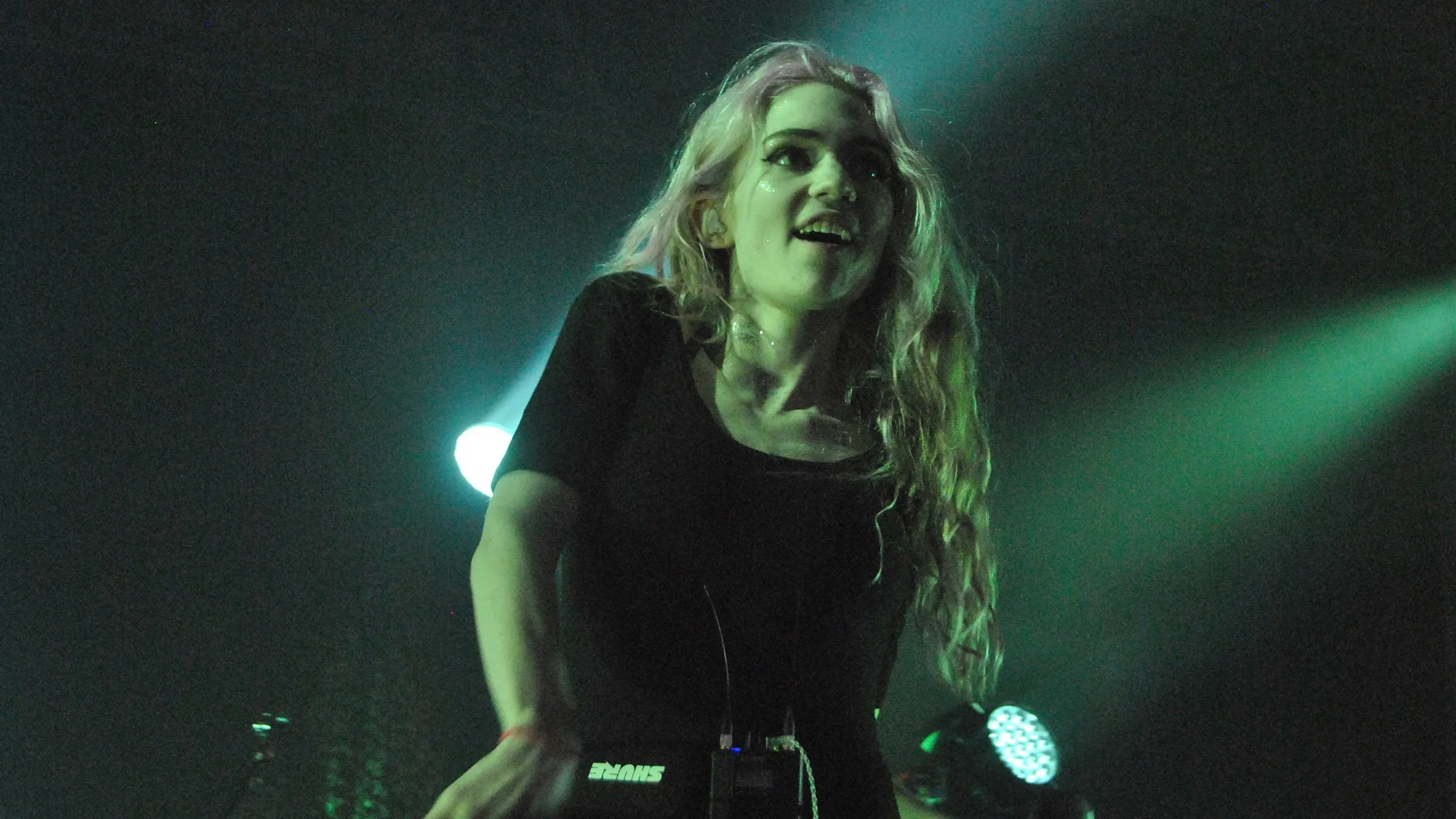Claire Boucher, better known as her musician persona Grimes, said that AI could give her the chance to live forever, while she meanwhile imagines traveling into space on a one-way trip to Mars.
In a wide-ranging, 4,500-word interview with Steven Levy of Wired, the 35-year-old avant-garde musician shared her often hopeful outlook on how emerging technologies could reshape art, business, and society in coming years. But she also voiced concerns over handing too much control to machines.
Grimes has become deeply immersed in the tech world, in part through her relationship with billionaire entrepreneur Elon Musk, with whom she has two young children. While she said motherhood has made her “pathologically optimistic” about the future, she believes new technologies should empower people, not supplant them.
“I’m very into accelerating human potential alongside AI,” she said, citing an interest in brain-computer interfaces. She said she would likely test Musk’s Neuralink implant herself someday—if it is proven safe.
Grimes spoke excitedly about the promise of artificial intelligence to reinvent creative fields like music through generative models. She recently allowed fans to use an AI system trained on her voice to generate their own Grimes songs, calling the project “open sourcing my whole identity.”
“It’s like, ‘Who am I, and what am I here for?’” she remarked, recalling her reaction to hearing the AI-produced songs. “On the other hand, it’s like, ‘Oh, sick, I might get to live forever.’ I’m into self-replication.”
But Grimes cautioned that technology companies should implement AI carefully, and said she has been meeting with music startups while visiting San Francisco.
"I’m trying to meet with all the people making generative AI music to try to convince them to do things in ways that are safe for the human psyche," "she told Levy, adding that excessive reliance on AI could discourage learning and creativity in areas like writing.
When it comes to AI companions, Grimes said she's thinking of building one for children.
"I have a friend who I think I’m going to work with to develop something like a toy that can talk to you," Grimes said.
Calling it a virtual tutor that could provide “world-class” instruction to anyone, she said an always-available conversational companion could "make life a lot easier for moms" and be preferable to kids spending all their time looking at screens.
Overall, Grimes believes AI can help solve problems like climate change, if developed ethically.
"We haven’t solved them before because we didn’t get pushed up against the wall—now we are there," she said. "I see a renewed sense of responsibility to the human race now."
Grimes was also bullish on the prospects for cryptocurrency and NFTs to empower artists financially, once the current moneymaking “aggro niche” fades. She told Levy that she made more money with NFTs than with her music.
“I’m sad about what happened to NFTs and crypto, because it got polluted fast with people trying to make as much money as possible,” she remarked. “But I do want to think about compensating artists, especially digital artists.”
Beyond the music industry, Grimes said she shifting her focus toward visual art and literature. She told Wired that she is also working on a children’s book series called “Transhumanism for Babies” to teach her kids about philosophy, technology and creativity. The books will have titles like “Culture for Babies,” “AI Robotics for Babies” and “Magic for Babies,” covering both fanciful and pragmatic themes.
“I want to make beautiful, profound children’s content—we really need more of that,” Grimes said. “I want to convince more people to be invested in raising the next generation.”
Above all, Grimes said she aims to create “future-optimistic art” that provides a hopeful counterpoint to "cyberpunk dystopias."
“Seeing my kids makes me pathologically optimistic,” she said. “It’s a life mission.”
As for Musk's plan to send a manned mission to Mars? Grimes said she'd consider taking the trip.
"I hope to die in space," she told Wired. "I would like to go far enough out there to where my body could not handle coming back... I’d go out there and live as long as I can until I die."
That would likely come late in life, she clarified, after her kids are much older.
While enthusiastic about the limitless potential of technology, Grimes stressed that innovation should not come at the cost of meaning, nor should progress outpace humanity’s ability to adapt. By developing new systems while preserving what is timeless, she said she believes society can build “the soul of an alien” without losing its own.
Editor's note: This story was drafted with Decrypt AI from sources referenced in the text, and fact-checked by Ozawa.

